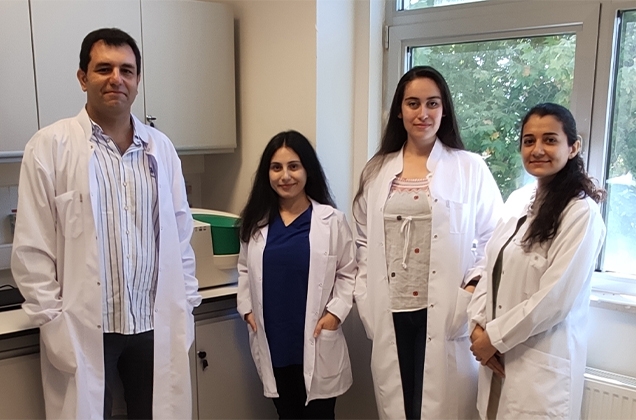14/09/2020
NEW KITS TO BE DEVELOPED FOR MORE ACCURATE COVID-19 DIAGNOSIS
Sabancı University and TÜBİTAK MAM GMBE cooperate to develop a new method for accurately diagnosing Covid-19 patients whose viral load is too low to be detected using real-time PCR. The ddPCR method used in the collaborative effort is expected to diagnose suspected cases with greater accuracy, helping to control the pandemic.

Although real-time PCR kits are effective in diagnosing Covid-19 cases, many patients still get false negatives due to low viral load. This leaves the pandemic to spread unchecked. Researchers from Sabancı University and TÜBİTAK MAM GMBE performed analyses and reached the common conclusion that the cause of false negatives is not sample quality, but the limitations of real-time PCR sensitivity. The discovery led to the two institutions cooperating to develop a new method for accurately diagnosing Covid-19 patients whose viral load is too low to be detected using real-time PCR. The studies involved a highly precise method called digital droplet PCR (ddPCR).
The research team, consisting of Dr. Cavit Ağca from Sabancı University and Professor Şaban Tekin (Director), Associate Professor Abdulllah Karadağ (Assistant Director) and Hivda Polat fromTÜBİTAK MAM GMBE, envision that the ddPCR method will have greater accuracy in diagnosing suspected cases and contribute to pandemic control by reducing the number of false negatives. The kits are expected to be offered to use by mid-September.
ddPCR is a technology that helps to detect the targeted DNA down to a single copy, and enables researchers to determine the absolute number of the targeted DNA in any sample. In addition, it is capable of highly-effective gene expression analyses on single cells or samples containing too little material. Based on this, Sabancı and MAM researchers re-used samples that had been prepared for Covid-19 real-time PCR kits in order to detect false negatives.
Thanks to ddPCR sensitivity, a patient who had been previously diagnosed to be negative was discovered to be Covid-19 positive with a low viral load. The researchers are confident that the ddPCR method will have greater accuracy in diagnosing suspected cases and contribute to pandemic control by reducing the number of false negatives.




